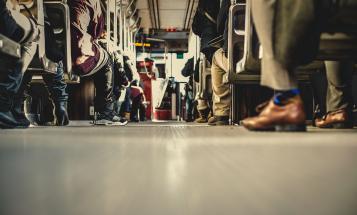
Billions in Campaign Spending at Stake in Hearing on Trump’s Supreme Court Pick
Hearings on Trump’s Supreme Court pick Neil Gorsuch are less than a week away—and whomever is confirmed to the lifetime appointment will have a decisive vote on whose voices carry weight in our democracy.
In a new report released today, Court Cash: 2016 Election Money Resulting Directly from Supreme Court Rulings, Demos demonstrates exactly what’s at stake by quantifying—for the first time—the direct impact of four of the Supreme Court’s most significant money in politics cases on 2016 election spending.
The Supreme Court’s rulings in Buckley v. Valeo (1976), Colorado Republican Federal Campaign Committee v. FEC (1996) and Citizens United v. FEC (2010) led to more than $3 billion in spending on the 2016 elections, which is equivalent to 45 percent of the total cost of the elections.
These same rulings led to 77 percent of spending in competitive congressional races.
Buckley v. Valeo—the decision that gave us the dubious concept that unlimited spending on politics is like free speech—allowed 123 wealthy candidates to spend $161 million on their own campaigns, and resulted in more overall 2016 election spending than the much-better-known Citizens United v. FEC.
In addition, 2014’s McCutcheon v. FEC allowed 1724 wealthy donors to contribute $274 million in “McCutcheon Money” in 2016—money that went beyond what would have been permitted by the previous “aggregate” contribution limit. The average contribution from these elite donors was more than five times the median annual household income in the U.S.
Court Cash demonstrates the profound impact of four decades of flawed Supreme Court rulings on the role of money in American politics. By striking basic protections against big money dominating our elections, the Supreme Court has shifted the balance of power towards the wealthy and special interests and away from ordinary Americans.
In a world where Judge Gorsuch joins a block of pro-big money justices to form a majority, billions of dollars from a tiny, elite slice of the American population will continue to dominate our elections. Large corporations and wealthy individuals will enjoy virtually unlimited ability to translate their economic might into political power. And, our legislatures and other elected offices will become even more skewed by race and class; policy will become even more tilted towards the preferences of the white, wealthy donor class; and people of color and working families across the nation will continue to fall behind economically and be alienated politically.
Court Cash shows exactly what’s at stake in the coming weeks. The ninth justice will help determine whether wealthy donors continue to drive our major policy decisions, or whether we can instead finally build a democracy where the size of our wallets no longer determines the strength of our voices. Judge Gorsuch would move us backwards and so cannot be confirmed.

